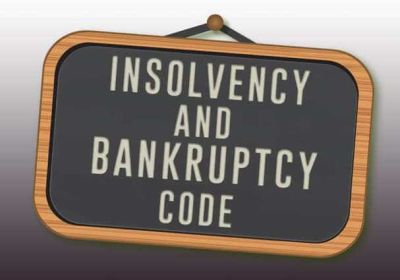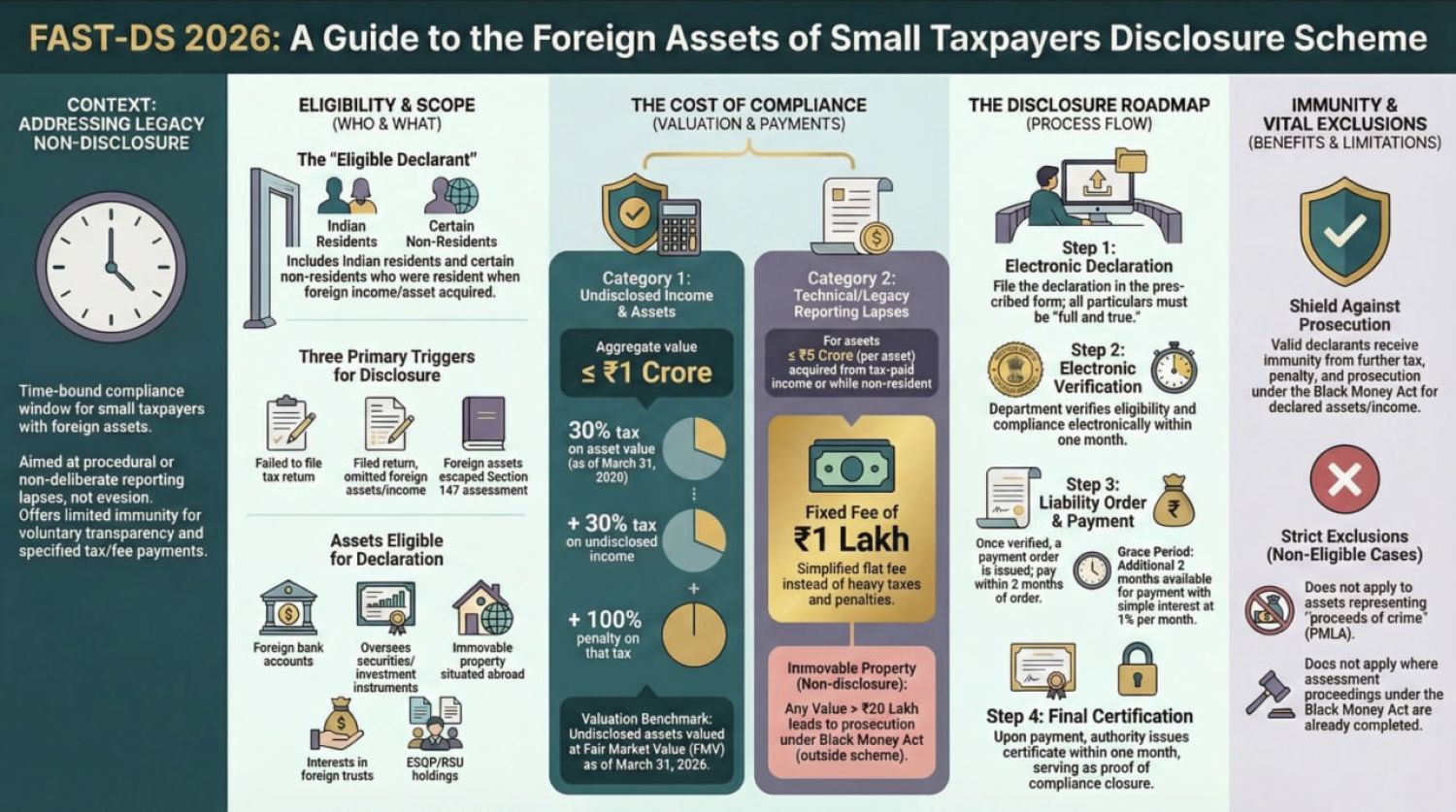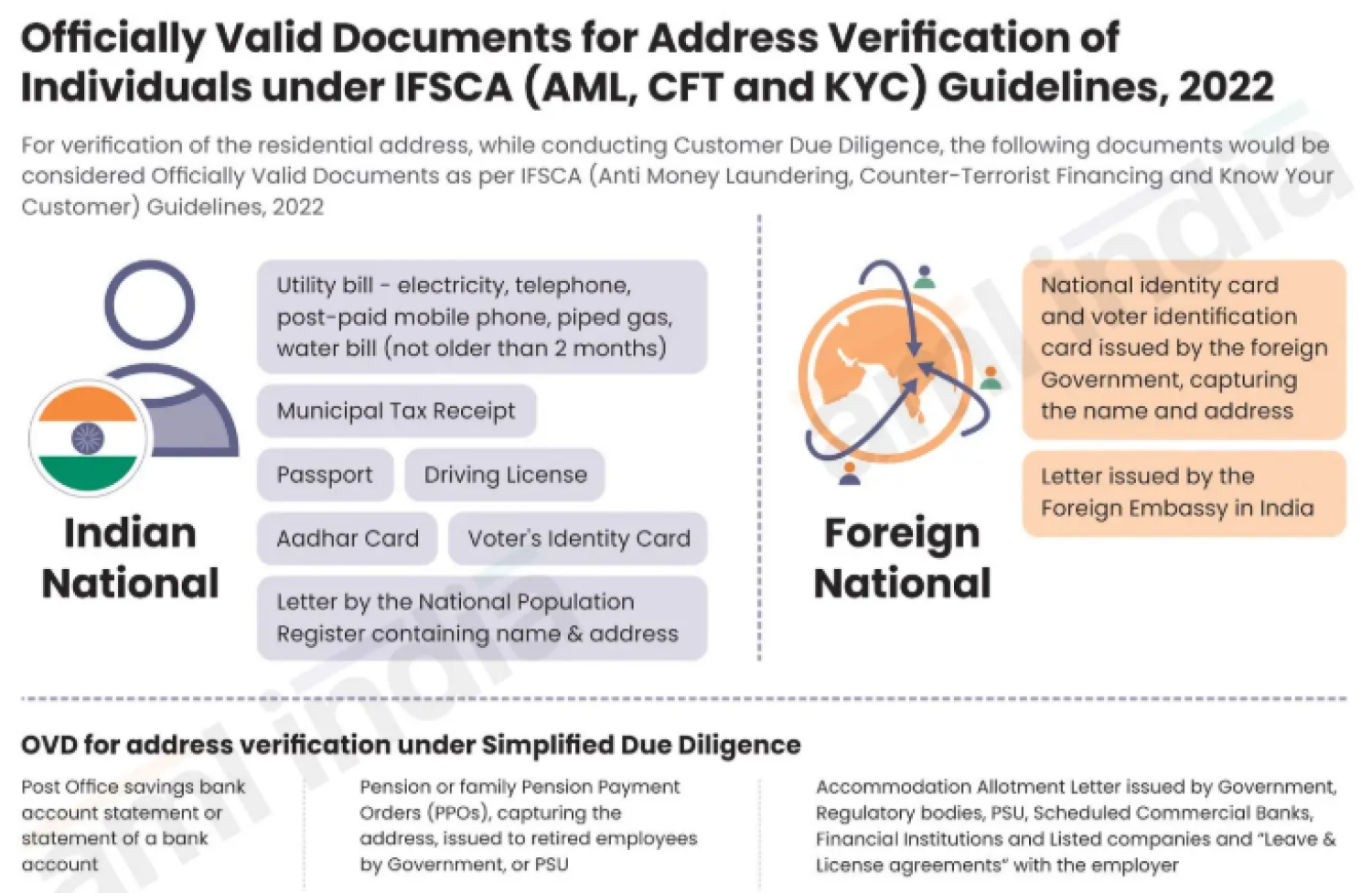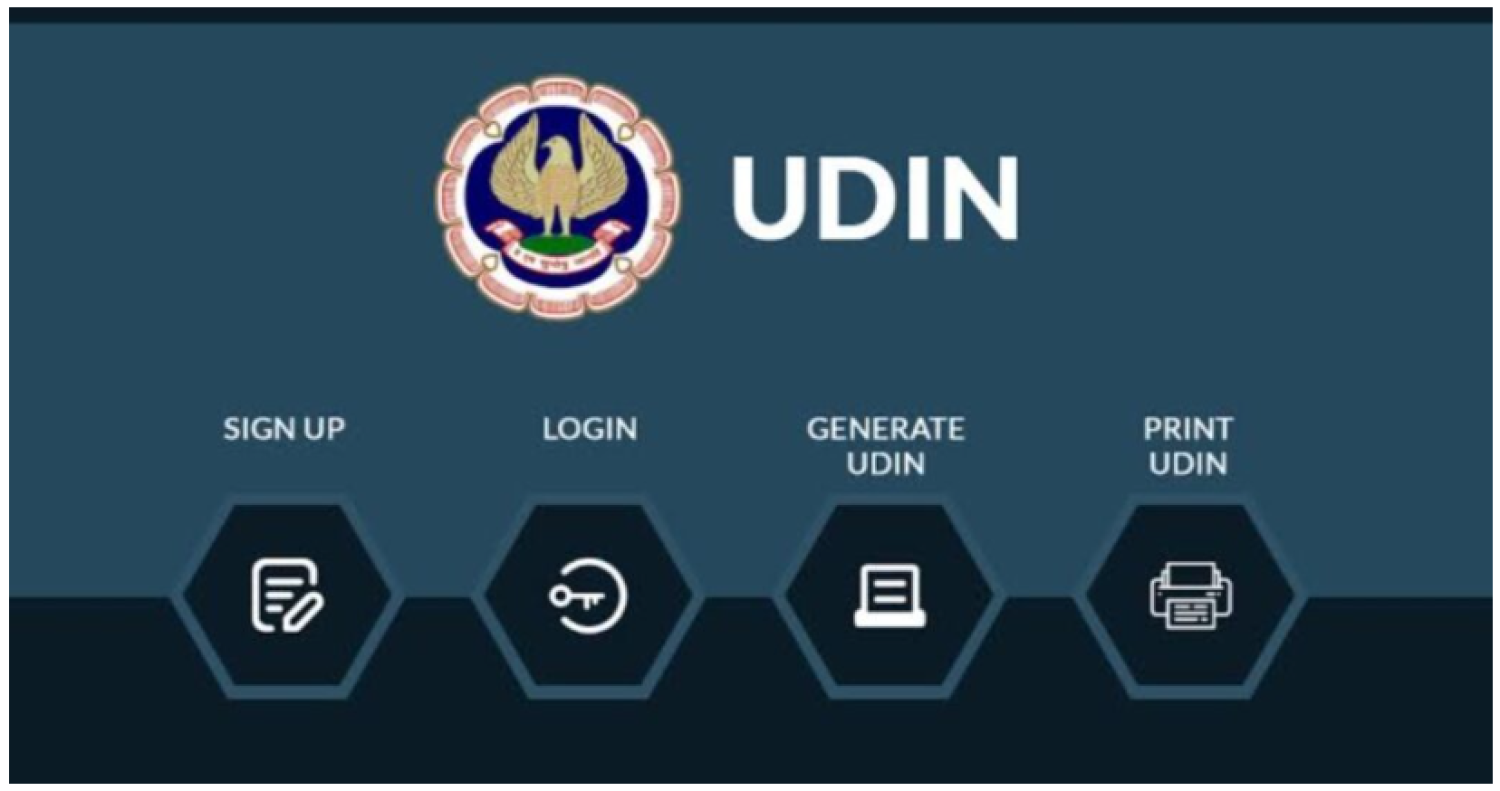Table of Contents
- Moratorium Under Ibc 2016
- Legal Wording, Meaning And Purpose Of The Moratorium
- Continuation Of Licensing And Grant During Cirp
- Exclusions From Moratorium
- Commencement And Period Of Moratorium {section 14(4)}
- Moratorium Before Initiation Of Cirp
- Moratorium To Continue, Till It Is Revoked
- Maturity Of Claims And Unmatured Claims
- Punishment For Contravention Of Moratorium Or The Resolution Plan [sec. 74]
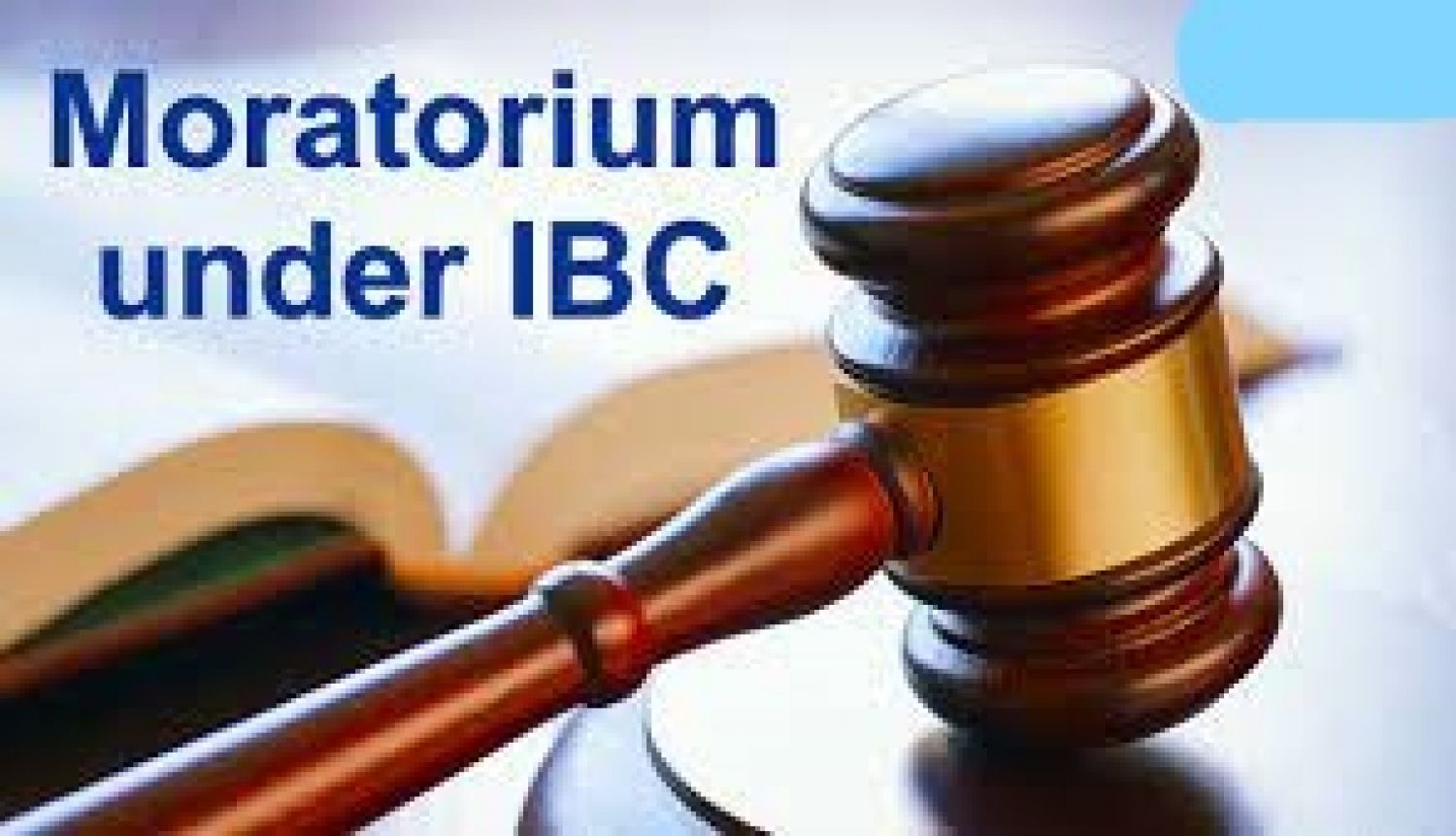
MORATORIUM UNDER IBC 2016
BRIEF INTRODUCTION
While undertaking a Corporate Insolvency Resolution Process, the RP is under an obligation to apply for a moratorium as declared by the adjudicating authority and a public announcement be made regarding the last date for submission of claims and the details of the interim resolution professional who would be managing the business on behalf of the corporate debtor and be responsible for receiving claims. In a CIRP, the Adjudicating Authority considers the resolution plan proposed for the revival of the debtor’s business. Where such a plan is approved by the NCLT under section 31 of the IBC, the moratorium order passed by the Adjudicating Authority under section 14 of the IBC ceases to exist.
Moratorium period refers to the period, during which, any institution of fresh suits or proceedings is prohibited by law and the existing suits and proceedings are stayed by the court order. The main idea of the moratorium is to facilitate the continuation of business operations, without any further interruptions. The essence of the moratorium is to provide free and uninterrupted business operations undertaken by the new management.
LEGAL WORDING, MEANING AND PURPOSE OF THE MORATORIUM
MEANING AND PURPOSE
Cambridge Dictionary defines the term moratorium as stopping an activity for an agreed amount of time, duly authorized by a court order. Under IBC 2016, it is defined as a period during which no judicial proceedings for recovery, enforcement of security interest, sale or transfer of assets, or termination of essential contracts can be instituted or continued against the Corporate Debtor and the same accompanied with the order of Adjudicating Authority.
The purpose of such an order is to keep the corporate debtor’s assets together during the insolvency resolution process and facilitate the orderly completion of the processes. It also facilitates the continuation of the business as a going concern and allows creditors to keep a watch on the resolution of default and the moratorium on initiation and continuation of legal proceedings, including debt enforcement action.
LEGAL ASPECT
1. Subject to provisions of sub-sections (2) and (3) of section 14, every RP before initiating the CIRP, shall submit an application with the Adjudicating Authority, asking for an order to declare a moratorium in respect of corporate debtor’s business. The moratorium to address the following aspects –
- Prohibition of the institution of new suits or proceedings and a stay on the existing pending suits or proceedings against the corporate debtor including execution of any judgment, decree or order under any law, tribunal, or other authority.
- Restriction on transferring, encumbering, alienating or disposing of any asses or legal right by the corporate debtor, vesting with them.
- Prohibition of any action to foreclose, recover or enforce any security interest created by corporate debtor in respect of its property including any action under the Securitisation and Reconstruction of Financial Assets and Enforcement of Security Interest Act, 2002.
- Also, there is a prohibition on initiating any recovery against the property occupied by or in the possession of the corporate debtor, though it is owned by some other person.
2. Any license, permit, registration, quota, concession, clearance or a similar grant or right as granted by the Central Government, State Government, local authority, sectoral regulator or any other authority under any other law, shall deem to exist and shall not be termed as suspended or terminated on the grounds of insolvency, provided there is no fault in complying with their regulations.
3. It is also provided that the supply of essential goods or services provided to the corporate debtor prior to insolvency, shall not be terminated or suspended or interrupted during the moratorium period.
4. The period of moratorium shall continue till the completion of the corporate insolvency resolution process, provided, that during the CIRP, if the Adjudicating Authority approves the resolution plan and the same is ready to be implemented, or the NCLT order for liquidation of the insolvent entity, the order of moratorium shall cease to exist, on the date such approval or order is made.
INTERPRETATION OF MORATORIUM PERIOD UNDER IBC
Hon’ble Supreme Court clarified, in the landmark judgment of P. Mohanraj & Ors. Vs. M/S. Shah Brothers Ispat Pvt. Ltd, that the provisions of the moratorium are very wide, since the institutions, judgments, suits, all are stayed by the court order. Apart from this, any arbitral award, issued before the insolvency, is also considered in the moratorium. Another important aspect of the moratorium is that proceedings are also stayed, meaning that any proceeding whether in civil court or criminal court, both are included in the moratorium order.
ALL PENDING PROCEEDINGS TO AUTOMATICALLY STOP
In the case of Haravtar Singh Arora Vs. Punjab National Bank & Ors., it was contended that during the period of Moratorium, the pending cases against the Corporate Debtor has not been stayed by the Resolution Professional.
It was held that the RP is not required to take any further steps. If an order of moratorium is made by NCLT, then all the pending suits and proceedings will automatically stop from the date when such an order is passed.
INITIATION OF PROCEEDING AGAINST SUBSIDIARY COMPANY
In Axis Bank Limited Vs. Alok Infrastructure Limited (2018), the Learned Counsel appearing on behalf of the Corporate Debtor submits that a petition, claiming that as the CIRP has been initiated against the Caproate Debtor, no proceeding or case be instituted against their subsidiary, as provided by the moratorium order.
However, NCLT rejected the petition and clarified that moratorium is for prohibiting institution of suits or continuation of pending suits against the Corporate Debtor including the execution of any judgment, and nothing is prescribed for initiation of CIRP against the subsidiary of the Corporate Debtor. A subsidiary company is a distinct entity separate from its holding company in the eyes of law. Thus, a moratorium order for a holding company, would not restrict any proceeding to be instituted against the subsidiary.
AMOUNT RECEIVED DURING CIRP, TO BE THE ASSET OF CORPORATE DEBTOR
NCLT in the case of Mr Sudip Bhattacharya RP of Reliance Naval & Engineering Ltd. Vs. UCO Bank provided that as per Section 14 of IB Code, any amount received during the CIRP when the moratorium is in force, be termed as the asset of the Corporate Debtor and the RP is required to deal with it, same as per the provisions of the IB Code and the respondent cannot use it to set off any claim filed.
PROCEEDINGS IN FAVOUR OF DEBTOR TO CONTINUE
In the matter claimed under the Power Grid Corporation of India Ltd Vs. Jyoti Structures Ltd., Hon’ble Delhi High Court held that it is important to know the nature of the proceeding against the Corporate Debtor. The provisions of the moratorium shall not apply to proceedings favouring the debtor. Staying such proceedings would rather be reducing the debtor’s scope to recover its money and hence would not fall in the embargo of Section 14(1)(a) of the Code.
PROCEEDINGS UNDER THE ARBITRATION AND CONCILIATION ACT, 1996
Hon’ble Supreme Court in P. Mohanraj & Ors. Vs. M/S. Shah Brothers Ispat Pvt. Ltd. 2021, held that greater importance is given to an award of an arbitration panel or an order of an authority. As discussed above, such arbitral awards are also included in moratorium order and thus, a stay be made on them as well.
This problem was addressed in Alchemist Asset Reconstruction Company Ltd. Vs. M/S. Hotel Gaudavan Pvt. Ltd. & Ors.2017, where the Hon’ble Supreme Court held that after moratorium under Sec. 14 order has been passed, arbitration proceedings cannot start or continue against the Corporate Debtor and their effect be void under the law. The following provisions were instituted –
- The moratorium order is intended to prohibit debt recovery actions against Corporate Debtor.
- Any proceeding may be continued under the Arbitration Act, provided it does not result in endangering, diminishing, dissipating of the assets of a corporate debtor.
ARBITRAL AWARD AFTER CIRP INITIATION
NCLT in Mr. Atul Rajwadkar Vs. HDFC Bank Limited & Ors. , provided that the arbitral order passed, post-admission of CIRP against the Corporate Debtor shall be considered in violation of the objective of the Code and such award be set aside.
ARBITRAL AWARD FOR SALE OF HYPOTHECATED ASSETS
In Tata Motors Finance Ltd. Vs. Jadoun International Pvt. Ltd. & Anr. 2019, the appellant reposed the two-truck hypothecated by the defaulting party. And they also sold the two trucks to recover their dues. The Adjudicating Authority held that even though the appellant was not having the information of a moratorium order, they would have given possession of the asset but they sold the assets. Thus, if they want their dues to be settled, they need to deposit the value of the trucks sold.
NCLAT rejected their appeal and held that once Section 7 Application was admitted, from the commencement date, moratorium got activated and thus, the same shall be void and be stayed. However, in case the appellant deposits money with the RP within 15 days of order, the Appellant may be allowed to lodge their claim with the RP, against Corporate Debtor.
ARBITRAL PROCEEDING AFTER APPROVAL OF RESOLUTION PLAN
In C. Satyanarayana Vs. Sri Vasudevan, R.P. & Anr. (2019), NCLAT stated the proceedings in Arbitral Tribunal and an award be passed but their execution is done after the moratorium period ends. The moratorium period ends where the Resolution plan already approved by the COC and Resolution Professional, has been placed before the Adjudicating Authority for approval under Section 31. After considering the same, NCLT approves the plan and the moratorium period ceases to exist from the date of approval of the plan.
DISCLOSURE OF IMPORTANT INFORMATION TO ANY OTHER PARTY
In Mr. V. Nagarajan RP of M/s. Cathar Ltd. Vs. M/s. Meenakshi Energy Ltd. [2018], an issue was raised, where an application was filed with Arbitral Tribunal for production of the certificates on completion of the project and the tribunal asked the applicant to produce the same. However, it was held by NCLT, that handing over or showing any document to any party will not amount to a violation of the order of Moratorium and the same is against the law.
PROCEEDINGS UNDER THE NEGOTIABLE INSTRUMENTS ACT, 1881
The Hon’ble Supreme Court in P. Mohanraj & Ors. Vs. M/S. Shah Brothers Ispat Pvt. Ltd. (2021), held that given the analysis of the Negotiable Instruments Act, it can be clearly made that a quasi-criminal proceeding that is contained in Chapter XVII of the Negotiable Instruments Act would amount to a “proceeding” within the meaning of Section 14(1)(a), and therefore it is subject to the regulation of moratorium order.
CRIMINAL PROCEEDINGS UNDER PREVENTION OF MONEY LAUNDERING ACT, 2002
NCLAT in Varrsana Ispat Limited Vs. Deputy Director Directorate of Enforcement 2019, held that the Prevention of Money Laundering Act, 2002 relates to proceeds arising from crime and the offence relates to money-laundering, which results in confiscation of property derived from or involved in, in such crime. It was provided that moratorium order under Section 14 of IBC 2016, shall not apply to such proceeds.
EXISTING CONTRACTS
As per the ruling in Gouri Shankar Jain Vs. Punjab National Bank & Anr. 195(IBC)22/2019, it was held, that the statutory right of a financial institution to proceed under the SARFAESI Act, 2002 remains suspended for a limited period but the existing contracts between the principal debtor, its creditor and surety remains unaffected.
VALIDITY OF COUNTERCLAIM
In the matter of SSMP Industries Ltd Vs. Perkan Food Processors Pvt. Ltd, Hon’ble Delhi High Court, held that if the continuation of any counterclaim, does not have any adverse impact on the assets of the corporate debtor, the provisions of Section 14 would not be triggered. However, once the counterclaims are adjudicated and the amount to be paid/recovered is determined, Section 14 would be triggered on the proceedings thereafter.
CLAIM OF PROPERTY IN ABSENCE OF AGREEMENT
In the matter of Monnet Ispat & Energy Ltd. Vs. Government of India, Ministry of Coal, the NCLAT provided that the Resolution Professional cannot claim any asset of the respective corporate debtor, wherein the agreement with the State Government in respect of such asset is in question, regarding its completeness or absence.
PROPERTY/LEASE/RENT AGREEMENT OF CORPORATE DEBTOR
In the case of M/s. Navbharat Castings LLP. Vs. M/s. Moser Baer India Ltd. & Anr. (2018), the appellant has challenged the order containing the direction to the Corporate Debtor through the Resolution Professional, to vacate the premises belonging to the decree-holder. NCLAT held any sought of recovery of property by the owner-occupied by the Corporate Debtor is not permissible during the period of moratorium.
LAND IN JOINT AGREEMENT
The Hon’ble Supreme Court in Rajendra K. Bhutta Vs. Maharashtra Housing and Area Development Authority and another [2020], considering various judicial pronouncements, held that the property which is occupied by the Corporate Debtor under a joint development agreement shall be considered as the property under the actual possession of the Corporate Debtor. And thus, the same be subject to the provisions of Section 14(1)(d) the Code, thereby, restricting any takeover of assets by any third party, in which the Corporate Debtor has a peculiar interest.
AMOUNT OF RENT DUE TO LANDLORD
NCLAT in JAS Telecom Pvt. Ltd. Vs. Eolane Electronics Bangalore Pvt. Ltd. (2018) ibclaw.in 133 NCLAT held that as per the regulation 31 of CIRP Regulations, 2016, any amount due to the person whose rights are prejudicially affected on account of the moratorium, shall be included in the insolvency resolution process costs. Where such amount is due prior to initiation of CIRP, the same cannot be considered to have been affected due to the moratorium order. It is like an amount due on behalf of the debtor. Thus, they can only be part of the proceeds received from the realization of assets. Thus, they need to file a claim with the RP, to get their dues paid.
PROPERTY NOT OWNED BY THE CORPORATE DEBTOR
In the case of M/s. Schweitzer Systemtek India Private Limited Vs. Phoenix ARC Private Limited [2017], NCLT held that the Moratorium order has no application on the properties that are beyond the ownership of the Corporate Debtor. Thus, any order facilitating the possession of property outside the ownership of the debtor, by the RP, shall be void.
ORDER OF INCOME TAX APPELLATE TRIBUNAL
The Hon’ble Supreme Court in Pr. Commissioner of Income Tax Vs. Monnet Ispat and Energy Ltd. [2018], upheld the ruling of the Delhi High Court that states that a moratorium under the IBC will apply to the order of the Income-Tax Appellate Tribunal. The Supreme Court clarifies that income-tax dues, being in the nature of Crown debts, cannot be paid, precedent to secured creditors.
GST DUES PRIOR TO CIRP
A clarification has been provided by the CBIC, that as per the provisions of the IBC 2016 and various legal pronouncements on the issue, no coercive action can be taken against the corporate debtor regarding the amount due for the period, prior to the commencement of CIRP. Thus, any amount if GST is due prior to CIRP, the same be treated as an ‘operational debt’ and claims be filed by the proper officer before the NCLT in accordance with the provisions of the IBC. Moreover, section 14 of the IBC relating to the moratorium period, shall also apply to any case or proceeding related to GST.
NON-COMPLIANCE WITH LODR REGULATIONS
Securities Appellate Tribunal in Dewan Housing Finance Corporation Ltd. Vs. SEBI (2020), held that where a moratorium has been declared under section 14 of IBC, the authority will have no jurisdiction to institute any proceedings. And where a proceeding has already been instituted and during the pendency of the proceedings a moratorium order is passed under section 14 then the same is to be stayed by a court order.
SEBI TO RECOVER THEIR DUES
As discussed above, it is clear that the Interim Resolution Professional is responsible for complying with the requirements under any law for the time being in force on behalf of the Corporate Debtor. In the matter of Ms Anju Agarwal Vs. Bombay Stock Exchange& Ors. [2019], the NCLAT held that any penal provision or penal order is passed for the penalty imposed on the Corporate Debtor or any recovery is required to be made in terms of Section 28A of the SEBI Act, 1992, SEBI cannot recover any such amount including the penalty from the Corporate Debtor.
POWER OF HIGH COURT
NCLAT in Canara Bank Vs. Deccan Chronicle Holdings Limited [2017] clarified that there is no provision to file any money suit or suit for recovery before the Hon’ble Supreme Court except under Article 131 of the Constitution of India thus, the power of the Hon’ble Supreme Court under Article 32 of the Constitution of India and Hon’ble High Court under Article 226 of Constitution of India cannot be curtailed or restricted by any provision of an Act or a Court. As a result, it becomes clear that the moratorium will not affect any suit or case pending before the Hon’ble Supreme Court under Article 32 of the Constitution of India or by any order under Article 136 of the Constitution of India.
RECOVERY BY UNION OF INDIA OR MINISTRY OF PETROLEUM & NATURAL GAS
NCLT in the matter of Union of India & Anr. Vs. Videocon Industries Ltd. & Ors. (2019), held that during the period of Moratorium, Union of India, Ministry of Petroleum & Natural Gas (Exploration Division), can neither recover any amount of dues nor can issue demand notice to the Corporate Debtor through RP. All the demand notices have stayed during CIRP. Such authorities can lodge their claim with RP, but cannot demand recovery of their dues.
COURT EXERCISING POWER UNDER ARTICLE 215
Hon’ble High Court in the case of Ved Prakash Abbott Vs. Kishore K. Avarsekar & Ors [2019], held that the moratorium order issued under Section 14 of the IBC shall not, in any way, contempt the Court exercising its powers under Article 215 of the Constitution of India along with the Contempt of Courts Act. Thus, even if any criminal proceeding is initiated by the court, the moratorium under Section 14 of the IBC, will not put a stay on it.
SALE OF IMPORTED GOODS LYING WITH CUSTOM AUTHORITY
In the case of Commissioner of Customs, (Preventive) West Bengal Vs. Ram Swarup Industries Ltd. & Ors. [2019], the imported goods of Corporate Debtor being in the custody of the Customs Authority were sold by the Commissioner of Customs, after the announcement of the moratorium for the corporate debtor. It was held that the act is not justified, as the customs authority cannot sell any asset attached to a corporate debtor, during the moratorium period.
SET OFF OF BANK DUES FROM CURRENT ACCOUNT BALANCE
NCLT, in Corporation Bank Vs. Amtek Auto Ltd [2017], provided that any amount of money lying the current account of the corporate debtor is the asset of such debtor and the same be accounted for by the RP and be placed at the disposal of the resolution professional without any set-off or adjustment on the part of the requisite bank.
ACCRUING OF INTEREST AFTER MORATORIUM PERIOD ENDS
As discussed above, it is clear that banks cannot set off their dues from the amount lying in the current account of the Corporate Debtor. Also in ICICI Bank Ltd. Vs. Interim Resolution Professional for Ruchi Soya Industries Ltd. (2018), NCLT held that in case such dues arises, the Financial Creditor can incorporate such dues and debit the amount in a separate set of the ledger. Once NCLT approves or rejects the resolution plan, the order of moratorium ceases to exist, and after that, the creditors are free to rewrite the debtor's ledger book including accrued interest and shall debit such amount in a separate record/ ledger.
PERSONAL ASSETS OF DEBTOR
In the matter of Suresh Chand Garg Vs. Aditya Birla Finance Ltd. [2018], NCLT held that the personal and individual assets of a Director is not considered as the asset of the entity for the corporate insolvency resolution process and the provisions of moratorium only applies to the assets of the Corporate Debtor.
INVESTIGATION BY THE POLICE AUTHORITY
The Hon’ble High Court in their ruling in India Infoline Finance Limited & Anr. Vs. The State of West Bengal & Ors. [2020] held that since any action of the police will have to be based on the investigation on the subject matter of the transaction, which is directly related to the CIRP, it is provided that such actions cannot be taken during the moratorium period.
ATTACHMENT OF PROPERTY PRIOR TO CIRP
In the case of Regional P.F. Commissioner Vs. T.V. Balasubramanian (RP) (Sholingur Textiles Ltd ) & Anr [2020] , it was held that due to the failure of duty by the Sub Registrar, the RP mistakenly attached the property at the time CIRP. It was evident that the attachment of the immovable property in question had already existed prior to the initiation of CIRP of the Corporate Debtor. The Sub Registrar failed to fulfil their duty to incorporate the attachment in the register, despite receiving the attachment order. Even though the moratorium order under Section 14 of the Code prohibits transferring, encumbering, alienating or disposing of assets or any legal right or beneficial interest belonging to the Corporate Debtor. But in this case, the property was already attached, prior to CIRP. Thus, the same cannot be accounted for by the RP.
WITHDRAWAL OF MONEY BY DIRECTORS DURING CIRP
NCLT, in the case of Manoj K. Daga Vs. ISGEC Heavy Engineering Limited [2020] pointed out that on an enquiry conducted by the IRP, the Directors of Corporate Debtor made huge withdrawals including cash withdrawals after the interim stay was put by the order of NCLT. Thus, I was held that the Directors acted in an illegal manner as once moratorium order is passed, withdrawing monies from the accounts at the back of IRP by even issuing cheques in their own name, is void and illegal and the same be treated as criminal misappropriation and criminal breach of trust, on the part of directors.
CASH DEPOSIT WITH HIGH COURT
In the matter of Nahar Builders Ltd Vs. Housing Development and Infrastructure Ltd[2020], HC held that the provisions regarding a moratorium cannot be applied to such cash deposits made in the Court. There is no bar to this application for withdrawal. Such application for withdrawal, thus cannot be considered as a suit, proceeding or execution within the meaning of Section 14(1)(a).
PAYMENT RECEIVED BY POST-DATED CHEQUE DURING CIRP
In SREI Equipment Finance Ltd. Vs. Amit Gupta (2019), the Adjudicating Authority held that the payment received by the Appellant from the Corporate Debtor on the basis of post-dated cheques encashed during the CIRP shall not be subject to the provisions of Section 14 of the Code. However, NCLAT upheld the ruling, on the grounds that even though cheques dated before CIRP but it cannot be encashed after the moratorium starts, in view of the specific provisions, to recover the amount from the Corporate Debtor.
LIEN ON GOODS BY CORPORATE DEBTOR
NCLT, in the case of Orbit Life science Private Limited Vs. Raj Ralhan PwC Professional Services LLP [2020], held that though the appellant is liable for getting the goods bailed, the corporate debtor is also liable to receive the respective amount. Thus, NCLT directed that with the returning of goods, side by side, the dues payable by the Appellant should come to the Corporate Debtor.
LIEN OVER BILLS BY CREDITOR ON NON-PAYMENT OF FULL AMOUNT
NCLAT in the case of Canbank Factors Ltd. Vs. Dharmendra Kumar [2019], provided that the claim of the Appellant/Financial Creditor for getting the right to create a lien on the bills until and unless the entire remaining outstanding amount is fully paid by the Corporate Debtor is invalid. NCLAT held that such a plea is invalid and be rejected as the provisions of the moratorium will be applicable for any recovery which is made during CIRP.
MARGIN MONEY KEPT IN FD ACCOUNT TO BE DEBITED BY BANK
In the matter related to State Bank of India Vs. Punjab National Bank & Ors. (2019) NCLAT stated that the appeal for margin money kept from the FD account prior to initiation of the CIRP, be debited against the dues. It was held that it will be open to the Resolution Professional to utilise the money for the purpose of Resolution Costs to keep Corporate Debtor a going concern and thus, the banks cannot appropriate such amount on their own.
CONTINUATION OF LICENSING AND GRANT DURING CIRP
Section 14 of the IBC provides that a license, permit, quota, concession, grant or right is given by a government to the corporate debtor, cannot be suspended or terminated on the grounds of insolvency, subject to certain exceptions. As discussed above, the main motive of CIRP is to let RP run the business of corporate debtor as a going concern and without such licenses and grants, the business being a corporate entity, loses its essence and it would be rather impossible to keep the corporate debtor running as a going concern during the CIRP period.
Also, it is clear that though creditors can neither take possession of the property nor can execute any disposing of such property, they still have the right to the renewal of rent or lease agreement.
EXCLUSIONS FROM MORATORIUM
1. CRITICAL SUPPLIES
It is to be noted that only critical or essential supplies of goods and services under Section 14(2), cannot be terminated, suspended or interrupted during the moratorium period. Accordingly, Section 14(2A) was added with effect from 28 December 2019 which provides that, where the RP considers any supply of goods or services is essential to protect and preserve the essence of the corporate debtor and also to manage its operations as a going concern, such supply shall not be terminated, suspended or interrupted during the period of moratorium. But where the corporate debtor has not paid dues arising from such supply during the moratorium period or in such circumstances as may be specified, the RP is required to consider such dues as part of IRP cost and the same be paid on priority basis.
Some essential supplies as specified under regulation 32 of the CIRP Regulations, 2016, are as follows –
- Supply of electricity to the manufacturing or production unit.
- Water supply.
- Telecommunication services wherever required.
- Information technology services.
These services are essential, provided these are not a direct input to the output produced or supplied by the corporate debtor.
2. JUDICIAL PRONOUNCEMENT RELATED TO MORATORIUM UNDER IBC 2016
- In the case of ICICI Bank v. Innovative Industries (MA 157 in CP 01/I&BP/2016. Decision date- 23.08.2017), NCLT clarified the electricity, water and telecommunication services and Information Technology service are essential services till they are not a requirement to the output produced or supplied by the Corporate Debtor. Thus, we can say that essential service is a service for the survival of humankind, but not for making business and earning profits without making payment for the services used. When a company use the same for making profit, then the company owes to make payment to the services/goods utilized in manufacturing purpose.
- In another case of Canara Bank v. Deccan Chronicle Holdings Limited (2017) NCLT held that as Section 14(2) Of the IBC Code, 2016 already exempted supply of essential goods and services to the Corporate Debtor thus, goods/services viz. Water, Electricity, printing ink, Printing plates, Printing Blanket, Solvents etc. will also be termed as essential supplies and the same be exempted during the moratorium period.
- NCLAT in the matter of Asset Reconstruction Company (India) Ltd. Vs. R. Venkatakrishnan & Anr. [2019] , held that the Electricity Board, cannot in their own authority, disconnect the electricity provided to the Corporate Debtor and the same is in violation of Section 14(2). In case, any amount is due for the period of the CIRP’, the Electricity Board is required to move before the Adjudicating Authority for payment of current dues of CIRP.
- In the case of Dakshin Gujarat Vij Company Ltd. Vs. M/S. Abg Shipyard Ltd. & Anr. [2018] NCLAT held that that the amount due towards the supply of essential goods and services, including electricity, water, Telecommunication services and information technology services, the same be included in the Insolvency Process Cost as specified under Section 5(13)(e). However, from the provisions of the Code and Regulations, we find that no prohibition has been made or bar imposed towards payment of current charges of essential services.
- NCLAT in the case of Uttarakhand Power Corporation Ltd. Vs. M/s. ANG Industries Ltd. [2018], held that the Electricity Board cannot recover any amount due for the period prior to CIRP, though they can file a claim before the Resolution Professional. In respect to dues after CIRP is initiated, the RP needs to consider such dues as the cost of CIRP and the same be paid on a priority basis.
3. EXCEPTIONS
Two exceptions have been provided in IBC 2016, on which the provisions of the moratorium do not apply. A new clause has been inserted to carve out surety in a contract of guarantee to a corporate debtor. Thus, the provisions do not apply to –
- Any notified transactions, or agreements, as the Central Government may notify, in consultation with experts of the financial sector regulator or any other authority.
- A surety to the corporate debtor, arising out of a contract of guarantee.
A. NOTIFIED TRANSACTIONS
It includes transactions notified by the Central Government in consultation with experts in the finance sector. It implies that these notified transactions include an agreement or arrangement in writing for the transfer of assets, or funds, goods or services, from or to the corporate debtor, which can take place even during the period of moratorium.
In the case of P. Mohanraj & Ors. Vs. M/S. Shah Brothers Ispat Pvt. Ltd. (2021) Hon’ble Supreme Court held that the light has been thrown only on the subject and the definition of the transaction be considered for considering it to be notified.
B. SURETY OF CORPORATE DEBTOR
A contract of guarantee is a contract entered between the creditor, the principal debtor and the surety, where the creditor has a remedy in relation to his debt against both the principal debtor and the surety. In case, the debtor defaults in payment of due to the creditor, the surety is liable to compensate the creditor for the same. The surety can be a corporate or a natural person and the liability of such a person goes as far as the liability of the principal debtor.
As per Section 14(3)(b), the surety in a contract of guarantee of a debt owed by a corporate debtor cannot avail of the benefit of a moratorium. Thus, the creditor can enforce a guarantee, though not being able to enforce the principal debt during the period of moratorium.
In the case of Sandip Kumar Bajaj & Anr. Vs. State Bank of India & Anr. (2020), the High Court of Calcutta held that it was evident under section 14(3)(b), that the prohibition for the continuation of suits and other proceedings against the corporate debtor, does not extend to a surety during the moratorium period.
4. BANK GUARANTEE
- NCLAT provided that the bank guarantee issued by the Corporate Debtor for ensuring the price of goods is irrevocable and unconditional and payable on demand without demur. As discussed above, the assets of the surety are separate from those of the corporate debtor, and it is also clear that any proceedings against the corporate debtor will not be impacted by the actions against assets of third parties like surety.
- In the case of GAIL (India) Limited Vs. Rajeev Manaadiar & Ors. [2018] NCLAT held that it is clear from sub-section (31) of Section 3, that the security interest does not include the Performance Bank Guarantee (PBG). Hence, the PBG given by the Corporate Debtor in favour of the Appellant is not covered by Section 14 and can be invoked in full or in part.
- NCLT in Nitin Hasmukhlal Parikh (Diamond Power Transformers Ltd.) v. Madhya Gujarat Vij Company Ltd. & Others (2018) provided that where the guarantee comes in the definition of ‘security interest’ and filed after the initiation of CIRP, the same cannot be invoked, during the Moratorium period.
- In the case of Morgan Securities & Credits Pvt. Ltd. Vs. Resolution Professional of Videocon Industries Ltd. (2020)NCLAT held that the amount deposited by way of Bank Guarantee against an arbitral award, if payable to the Financial Creditor, under a case filed in Tribunal, the said amount is to set off the claim of such creditor which is already filed with the RP. Thus, during the CIRP, the amount is required to be deposited with the Resolution Professional and the Appellant’s claim can be taken care of by the Successful Resolution Applicant if a resolution plan is approved.
- NCLAT, in the case of Thermax Limited Vs. Viswa Infrastructures Services Private Limited & Anr. (2019), held that if Corporate Debtor if invoked the Bank Guarantee without any fault, the claim of the Appellant can be admitted by the Resolution Professional, who can derive the benefit of the ‘Operational Creditor’ after the process is completed.
COMMENCEMENT AND PERIOD OF MORATORIUM {Section 14(4)}
- The moratorium comes into effect from the date of commencement of CIRP. On the date of admission of an application for initiating CIRP by the Adjudicating Authority under sections 7, Section 9 or section 10, the RP appointed by COC, shall make an application to NCLT, for granting of moratorium order.
- The time limit for the moratorium is set out under Section 14(4) and the same is specified till the earlier of, the completion of the CIRP or on the approval of the resolution plan by NCLT or on a resolution passed by the committee of creditors, to liquidate the corporate debtor.
- Under IBC 2016, the CIRP is required to be completed within a period of 180 days from the date of admission of the application, however, the said period can only be extended by 90 days, subject to an application being made to the adjudicating authority after a resolution is passed at a meeting of the committee of creditors passed by sixty-six per cent votes.
MORATORIUM BEFORE INITIATION OF CIRP
In the matter related to NUI Pulp and Paper Industries Pvt. Ltd. Vs. M/s. Roxcel Trading GMBH [2019] NCLT held that once an application under Sections 7 or 9 is filed by the Adjudicating Authority, the corporate debtor, need not necessarily wait for the Adjudicating Authority to pass the order of Moratorium under Section 14 of the Code. Since the main aim is to ensure that one or other party may not abuse the process of the Tribunal or for meeting the ends of justice, any appellant is free to apply to the Tribunal for the passing of appropriate interim order.
MORATORIUM TO CONTINUE, TILL IT IS REVOKED
NCLAT in the matter of Isgec Heavy Engineering Ltd. Vs. Bhushan Energy Ltd. Through its R.P. & Ors. (2019) held that NCLT should pass the order appropriately, as they passed the order that moratorium to continue, till application for its revocation is made. Corrections are made that, if the order is not passed within 3 weeks from the production of this order, then the appellant can continue any proceeding against the debtor.
MATURITY OF CLAIMS AND UNMATURED CLAIMS
1. CLAIM OF THIRD PARTY, DUE DURING CIRP
Where the right of the guarantor, who may not have claimed their dues on the date of initiation of CIRP, the third person having obtained guarantee, may invoke such guarantee to recover the amount from the guarantor, but only after the period of moratorium ceases to exist. However, in such cases where the moratorium is in place, and the claim of a third party arises under a contract of guarantee, the creditors may file a claim with the RP.
2. UNMATURED CLAIMS
- In the real world, there exist certain claims or dues that are to be matured in future. During CIRP, the Creditor along with the claims matured on the date of initiation of Resolution Process/admission shall file any claim which is due in future on its maturity.
- Another option available with the creditors is that they may submit a claim when it becomes due, after completion of the period of Moratorium, subject to survival of the Corporate Debtor. Thus, we can say that the amount of debt which the ‘Corporate Debtor’ owes for payment in future, if not submitted and claimed in the ‘Resolution Plan’, does not extinguish the rights of creditors to claim them in future.
PUNISHMENT FOR CONTRAVENTION OF MORATORIUM OR THE RESOLUTION PLAN [SEC. 74]
- Under the IBC 2016, where any violation of any provision of the moratorium is violated, on behalf of the Corporate Debtor, the same is subject to imprisonment for a minimum of three years and can be extended up to five years. Also, the officials involved in such violations, be also fined a minimum amount of Rs 100,000, which can be extended to Rs 300,000.
- Officials of creditors and their representatives, who knowingly and willfully authorise or permit any such contravention, be penalized with imprisonment of a minimum of one year, with an extension up to five years. Apart from imprisonment, a monetary penalty is also levied with a minimum of Rs 100,000 and can be extended to Rs 1 crores.
DETAILED PUNISHMENT PROVISIONS UNDER IBC
- CORPORATE DEBTOR AND ITS OFFICIALS – If they violate any of the provisions of section 14, such officer who knowingly or wilfully committed or authorised or permitted such contravention shall be penalized, with imprisonment for a minimum of three years, and can be extended to five years or with a fine amounting to Rs 1 lakh, which may extend to Rs 3 lakhs, or with both.
- CREDITORS – If they knowingly and intentionally authorise or permits such contravention, the same be penalized with, imprisonment for a term of a minimum of one year, which may be extended to five years, or a monetary penalty of at least Rs 1 lakh, which may extend to Rs 1 crore, or with both.
- DEBTOR OR CREDITOR IN RESOLUTION PLAN – in case of violation or contravention in the implementation of the resolution plan, the violators shall be punishable with imprisonment of at least one year, which may be extended to five years, or with a monetary penalty of Rs 1 lakh, up to a maximum of Rs 1 crore, or with both.








